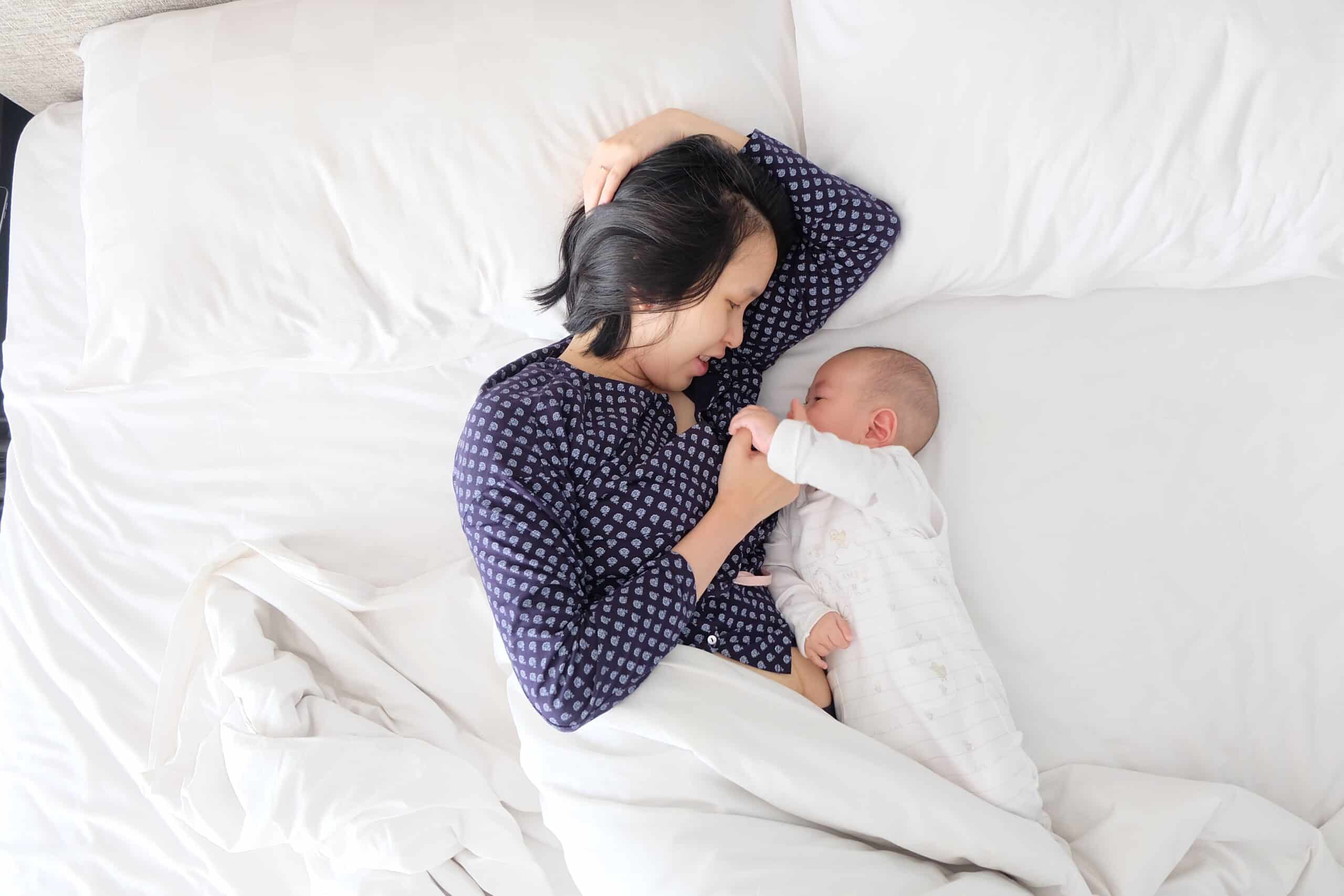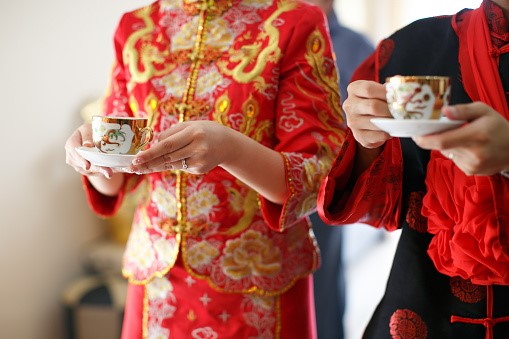Straight after childbirth, Chinese mothers confine themselves at home or in confinement centers for a month. This is called Zuo Yue Zi (坐月子), which directly translates to ‘sitting the month’. The purpose of this confinement is to strengthen the weakened body following pregnancy to ensure the mother can later take on the demanding and energy-consuming tasks of parenting. For new mothers sitting the month at home, their mother or a hired nurse called a Yuesao (月嫂) takes care of the baby and housework while the new mother rests. In confinement centers, the mother and baby are taken care of by a team of people including Yuesaos. In 2020, the market size of China’s confinement center industry was 15 billion RMB, with a CAGR of 42.45%. This tradition has been around since the Han dynasty when Traditional Chinese Medicine supported the blood loss during pregnancy that causes an imbalance in the mother’s yin and yang – lots of yang is lost and the mother enters a state of yin. The regimen new mothers follow in confinement promises to balance their yin and yang, which restores their health.
Confinement’s Dos and Don’ts
Due to the early origins of Chinese postpartum traditions, Zuo Yue Zi rules have gradually been modified with scientific understanding and improvements in sanitation. For example, mothers are not supposed to come into contact with water during confinement; they cannot shower or brush their teeth. This made sense historically when water was a carrier of diseases, which would further compromise the mother’s immune system. However, water today is clean. New mothers who want to take baths often have to fight or do it secretly from their mothers who want them to strictly follow the regime. Most confinement centers bathe mothers with warm water infused with ginger, which removes the excess yin from the mother’s body and washing is considered important, especially for women that have undergone C-sections.
Another rule that has been modified is not to turn on the air conditioner or fan since one of the core elements of confinement is to “keep the wind from entering your body”. This can be insufferable in the summertime so doctors now suggest that if it is required, AC or fan can be turned on but “not aimed directly at the new mother”. In addition, visitors are not allowed as they bring the new mother in contact with bacteria, risking contamination. The new mother must wear warm comfortable clothes, meaning long sleeves and wooly socks even during a scorching summer to avoid catching a cold. The new mother must not exercise, must sleep long hours, strictly stay indoors with windows kept closed, and rest as much as possible: “she must not surf the internet, use any gadgets or read”. Lastly, she must not worry about taking care of her baby, instead, only focus on playing, breastfeeding (only during the daytime), and spending quality time with it since the rest is taken care of.
What to eat during confinement
According to TCM theory, the interaction between yin and yang generates Qi (气). Some foods replenish the Qi, and these foods are always warm and rich in protein. It is an important Chinese postpartum tradition for mothers to eat lots of soups, since boiled water is safer to drink, and the mother needs to stay hydrated during confinement. These soups are usually fish or meat soups that help with the growth and repair of tissues and induce breastmilk production. 2018 research shows that only 20% of Chinese mothers exclusively breastfeed their child for the first 6 months compared to the global average of 45% – reasons being heavy marketing of formula milk and encouragement by doctors. Thus, confinement centers today encourage breastfeeding. Soups with animal internal organs are also very popular.
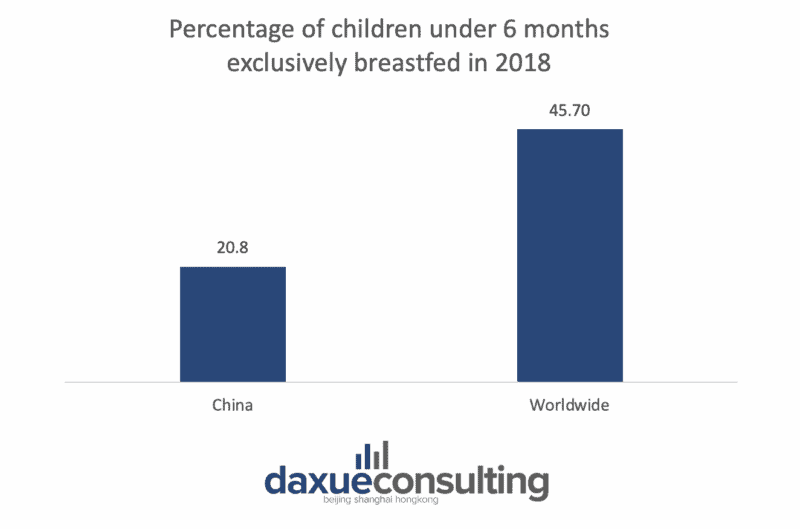
The new mother must ideally have 6 meals a day. Fruit and spicy food must be avoided since they are thought to dry up the new mother’s breast milk. Uncooked foods generally must not be eaten, so new mothers mostly eat cooked vegetables to obtain fiber. Processed foods are also not allowed, so many mothers complain about the food being bland. Coffee is not allowed. Confinement meals focus on wound recovery, improvement of appetite, inducing milk supply, increasing physical strength, and anti-aging. Sesame oil, ginger, goji berries, and rice wine are some of the staple ingredients used in meat and fish soups following Chinese postpartum tradition.
The ballpark of the confinement business
Confinement centers come in different price ranges. On the higher end of the spectrum, Mengnuo Yuezi club in Shanghai charges 1.9 million RMB for a month’s stay. Luxurious confinement centers are mushrooming across China as newly rich mothers are committed to having a perfect confinement experience, and their families want to make sure they are well taken care of. On the cheaper side, many highly-rated confinement centers on Da Zhong Dian Ping cost around 20,000 RMB per month (3,000 USD). Most confinement centers fall within the range of 20,000 RMB to 1 million RMB (153,000 USD) per month. Cheaper confinement centers are hard to come by, thus, only middle to high class and wealthy mothers can afford them. Lower-class mothers follow confinement at home with the help of their mothers. Although there is a fixed price for the basic service, most confinement centers sell extras at an additional cost. Extras one can buy include baby photoshoots, beauty treatments, breast massages to increase breastmilk production, yoga,and childcare consulting.
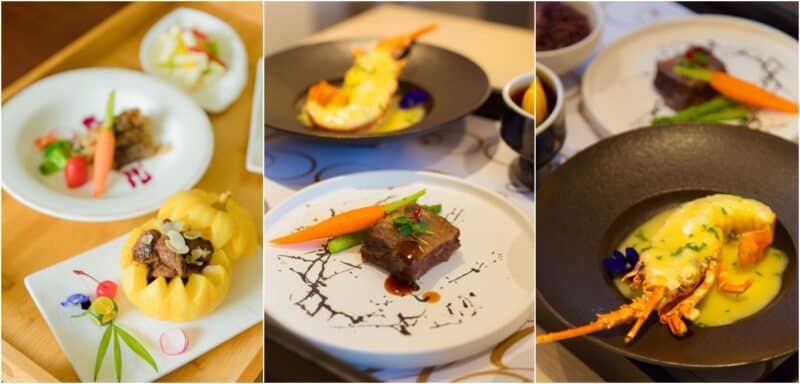
Popularity of confinement today
Most mothers on Xiaohongshu express feeling energized after confinement, and are ready to take on the demands of motherhood. One mother writes a detailed post praising confinement and how well it made her feel: “Hello girls! Confinement is a great opportunity for every woman to recuperate! Confinement helps you become more beautiful and thinner than before pregnancy, I’m a living proof!” Another woman posts that during confinement she had the opportunity to practice self-care, by spending hours on skincare every day. She describes her skincare routine and ends the post by saying “Confinement is so cool”.
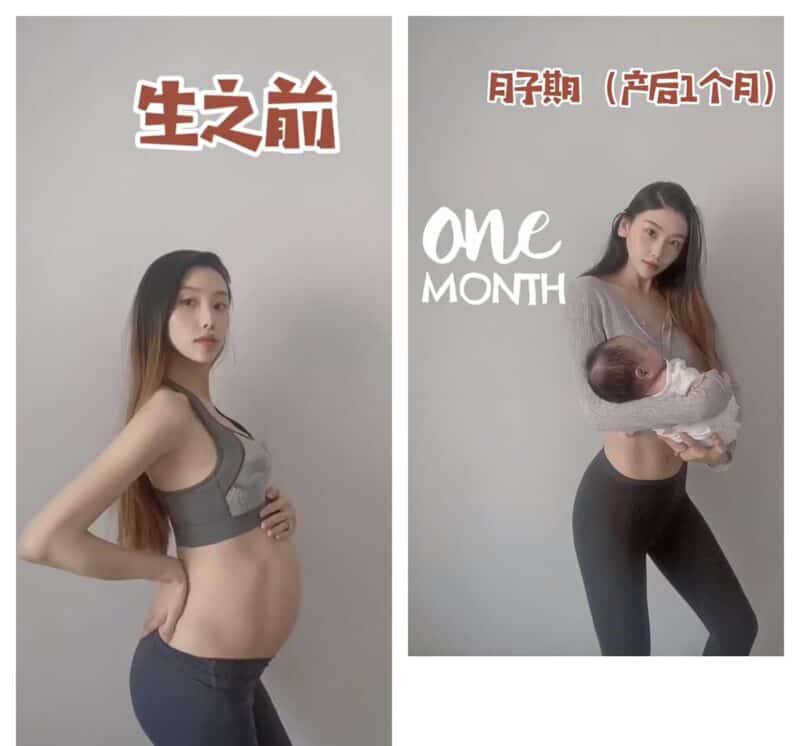
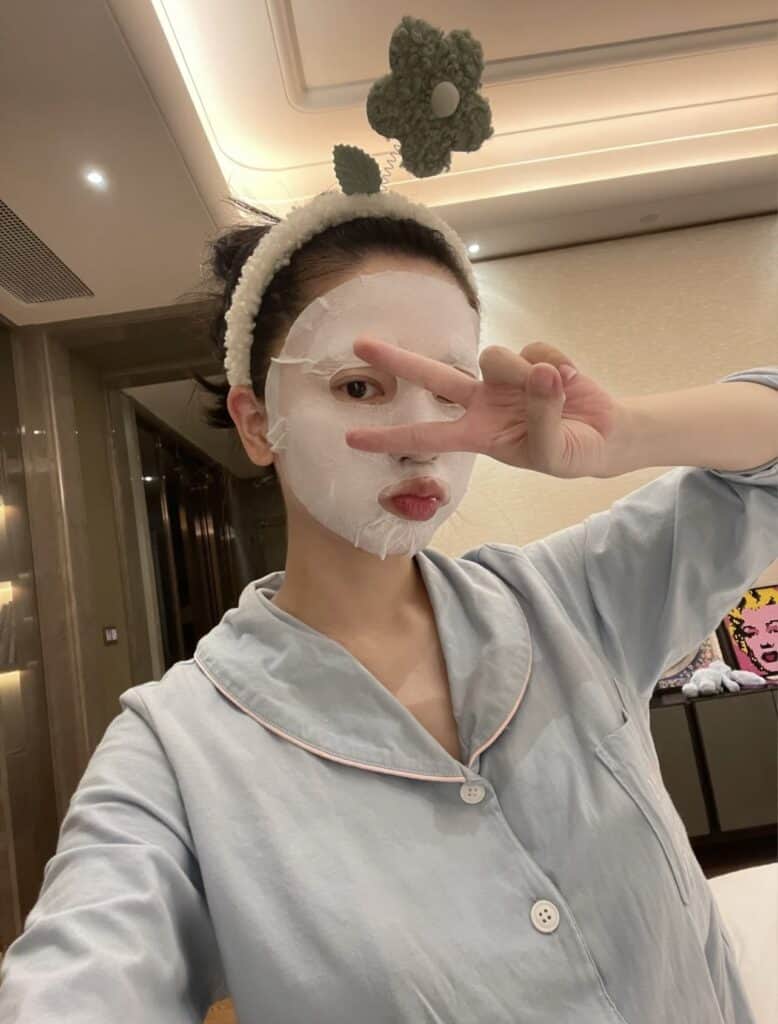
Key takeaway of Chinese postpartum traditions:
- For the first month after birth, Chinese mothers confine themselves at home or at a confinement center in order to restore their health
- Some of the rules they follow during confinement include wearing warm clothes regardless of the season, not turning on the AC or fan, showering with boiled water, not exercising vigorously, getting plenty of sleep, limiting the use of electronics
- Their child is cared for by nannies/nurses called Yuesao (月嫂) or their mother
- They follow a strict diet regimen full of protein-rich soups; meat soups with internal organs and fish soups, and certain ingredients like sesame oil and goji berries
- Confinement centers are on the expensive side, so only middle to high-class mothers can afford them
- The goal of confinement centers is to take care of infants 24/7 and prepare all meals, some extras include baby photoshoots, breast massages, childcare consulting, and yoga classes.
Author: Nefeli Georgiou


